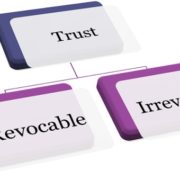Are Your Parents in a Nursing Home? Here Are Ways to Prevent Medicaid Estate Recovery
Medicaid crisis planning has become a hot topic in estate planning. More people need Medicaid to survive the issues and problems of old age but very few actually take the time to address and plan for this all too important need. Contrary to popular belief, Medicaid is not free money. Medicaid is a needs based state and federal program which applicability is primarily focused on recipient income and assets. By waiting too long, though a person may have a sever need for Medicaid support, in the eyes of the program, they’re “too rich” to qualify. At this point, they are left waiting in a state of poverty or sacrificing a lifetime of investment and savings, the spend down, to qualify. Don’t let this happen to you.
Since Medicaid enrollment is surging across the country and the baby boomer generation is aging, the significance of Medicaid enrollment and planning cannot be understated. As always, contact a local Cleveland estate planning attorney to find out how to plan your estate to maintain eligibility for Medicaid, preserve the maximum amount of assets possible while still maintaining that eligibility, and avoid or proactively plan around the Ohio Medicaid Estate Recovery program, “MER”. The MER program is something not a lot of people have heard of, but it can potentially effect millions of senior citizens every year. The government doesn’t care that you’ve heard of the law, only that it is followed.
What is the Medicaid Estate Recovery Program?
The Medicaid Estate Recovery program is a federally mandated program which dictates that when a Medicaid recipient dies, the MER program, carried out by the Ohio Attorney general’s office, will attempt to recover from the estate what Medicaid paid for the services provided. Generally, the program will attempt to recover any medical assistance paid by Medicaid if 1) the Medicaid recipient was aged 55 years or older, 2) the Medicaid benefits were correctly paid, and 3) the recipient was permanently institutionalized, like residing in a nursing home or PASSPORT facility.
What assets are recoverable?
For purposes of the MER, the state uses an expansive definition of “estate assets,” which includes any property a Medicaid recipient had any legal ownership interest in at the time of death. Such as assets in a living trust, assets owned jointly, real property tenancies, and TOD and POD designated assets. After death, even property Medicaid determined exempt during a recipient’s lifetime, such as a house accompanied with an intent to return, household goods, or life insurance policies, are subject to recovery. That is why to be aware of the Medicaid lookback period and plan asset ownership and transfer accordingly.
What assets are except?
As a starting point, remember that to qualify for Medicaid, an individual’s countable resources must be below $1500. The good news, however, is that exempt resources and assets do not count towards this total, at least initially. The following is a non-exhaustive list of exempt resources from Medicaid.
- One automobile – if less than $4500 or any value to the non-institutionalized spouse. This is associated with the Community Spouse Resource Allowance, consult your estate planning attorney for more information.
- Household goods – plates, clothes, books, etc.
- Burial plots – burial plot, gravesite, casket, urn, etc.
- Prepaid burials
- Qualified Medicaid annuities
- Qualified Long-term Care Insurance Policies – these are special insurance products that most insurance companies don’t carry, contract your insurance agent. These polices provide LTC in order to avoid depleting assets spent on Medicaid for long-term care.
- Primary residence – exempt if non-institutionalized spouse or child under 21 who is blind or disabled is living there. Institutionalized spouse can claim primary residence exemption if obtain affidavit of intent to return.
- Sale of a house – very nuanced exemption rules but, in a nut shell, if actively attempting to sell a house and if you follow Medicaid regulations, though technically you still own property that would make not you Medicaid ineligible, this ownership and sale won’t effect eligibility.
Exemptions to Medicaid countable resources aren’t really considered in most estate plans, even those specifically geared towards preserving assets and ensuring Medicaid qualification. They do, however, become of critical importance in the context of Medicaid crisis planning. Those situations where Medicaid support is needed immediately but no proper estate planning took place in the proceedings years when Medicaid eligibility wasn’t a concern. At this point, every avenue and tactic of getting into Medicaid and sheltering estate assets is analyzed, all at the expense of the family who failed to plan is now scrambling. As any estate planning attorney or financial planner will tell you, the up-front cost of proactively planning is nothing compared to doing everything last minute in a time of dire need.
Most people have spent a lifetime amassing wealth, property, and possessions that they want to leave to friends and family. Assisted living facilities, nursing homes, and hospice care, however, are often possibilities no one contemplates, let alone proactively prepares for. Federal and state assistance programs such as Medicaid often play a critical role in providing the necessary financial support in our elder years. The MER program, however, means that the use of these programs is not without cost. A cost that is regularly not understood when the need is greatest and rarely known by the surviving family when estate assets are taken by the government for services rendered. An estate planning attorney has the knowledge and can formulate the appropriate strategies for your goals and worries to ensure that the most amount of assets go where you want them to go and not to Uncle Sam.
You don’t have to be rich to protect what you’ve spent a lifetime trying to build. To find out whether a trust is right for your family, take the one-minute questionnaire at www.DoIneedaTrust.com. There are a number of different trusts available and the choices are infinite. With every scenario, careful consideration of every trust planning strategy should be considered for the maximum asset protection and tax savings.










